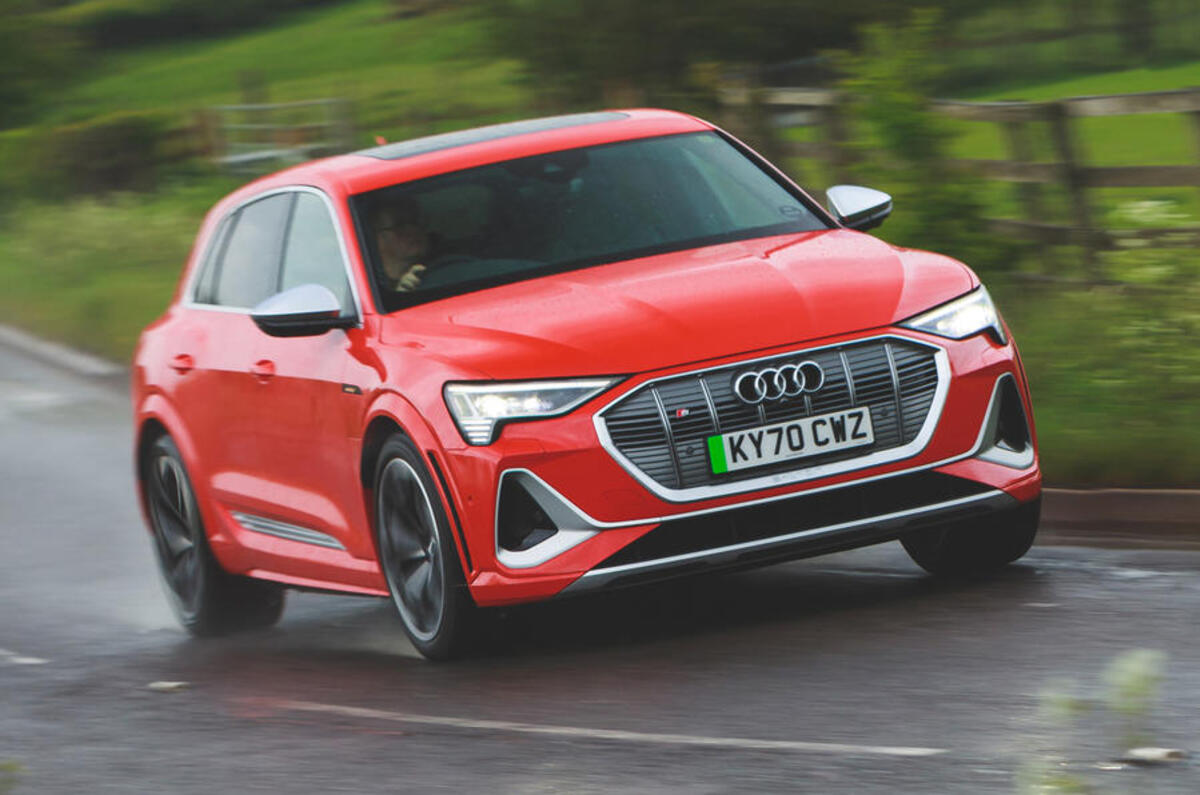Audi has widened its one-card electric vehicle charging service to cover almost 75% of the UK's public charging network, covering over 17,500 charging points.
The service, which allows customers to charge at several branded charging points for a fixed, monthly cost, previously applied to selected AC, DC and Ionity charging points, but it has now been expanded to include BP Pulse, Pod Point, Source London and 19 other UK operators.
“Audi’s aim has always been to make the transition from combustion to electrified vehicles as easy as possible for our customers, and the expansion of our ultra-convenient E-tron charging service is a clear demonstration of that,” said Andrew Doyle, Audi UK director.
“With only one card, Audi customers now have access to almost 75% of the UK’s public charging points. That’s a vast collection of fast, rapid and ultra-rapid charging points across the country, which will provide them with greater flexibility and convenience day to day.”
Customers will continue to have the choice of ‘city’ and ‘transit’ tariffs. The city tariff, aimed at those who travel mainly in urban areas, cover shorter distances and have the option to charge from home, will cost £4.91 per month at standardised rates of 29p per kWh for standard charging and 39p per kWh for fast-charging. Faster-charging, 350kW Ionity stations are fixed at 70p per kWh.
The transit tariff, for customers who travel greater distance and require faster charging times, costs £16.81 per month on a 12-month contract. Standardised charging rates mirror the city tariff's, but it features a discounted Ionity rate of 28p per kWh.
E-tron owners will also receive the transit tariff free for the first 12 months, along with a £150 charging voucher. BP’s instant access is included in both tariffs, with costs of 20p per kWh for AC charging, rising to 42p per kWh for chargers with speeds of 120kW and above.
The service applies to E-tron models, which have an RFID card inside the glovebox that can be used to register for the service using the vehicle’s VIN number.
Customers can also use chargers in Europe with no additional roaming costs on both tariffs and can begin and track the charging process using the charge card or through the myAudi app.
READ MORE
Audi Skysphere concept is shape-shifting, self-driving roadster




Join the debate
Add your comment
Last week I drove my EV from South Wales to Norwich and back in a day and only used my credit card to pay for electricity. Very soon these additional cards will be obsolete unless they offer substantial discounts or loyalty points.
BTW good on Gridserve for upgrading the appalling Ecotricity MSS chargers - it’s made a massive difference already.
And it's exactly this type of nonsense that makes everyday drivers avoid electric vehicles. A petrol equivalent would let you get cheaper petrol, at a faster pump, for a monthly fee, but each fuel company BP, Shell etc would charge a different amount but you have to login first and the fuel pump may or may not work in another country. Just crazy, it's the current obsession with recurring monthly revenue that means we have this overly complex business model.